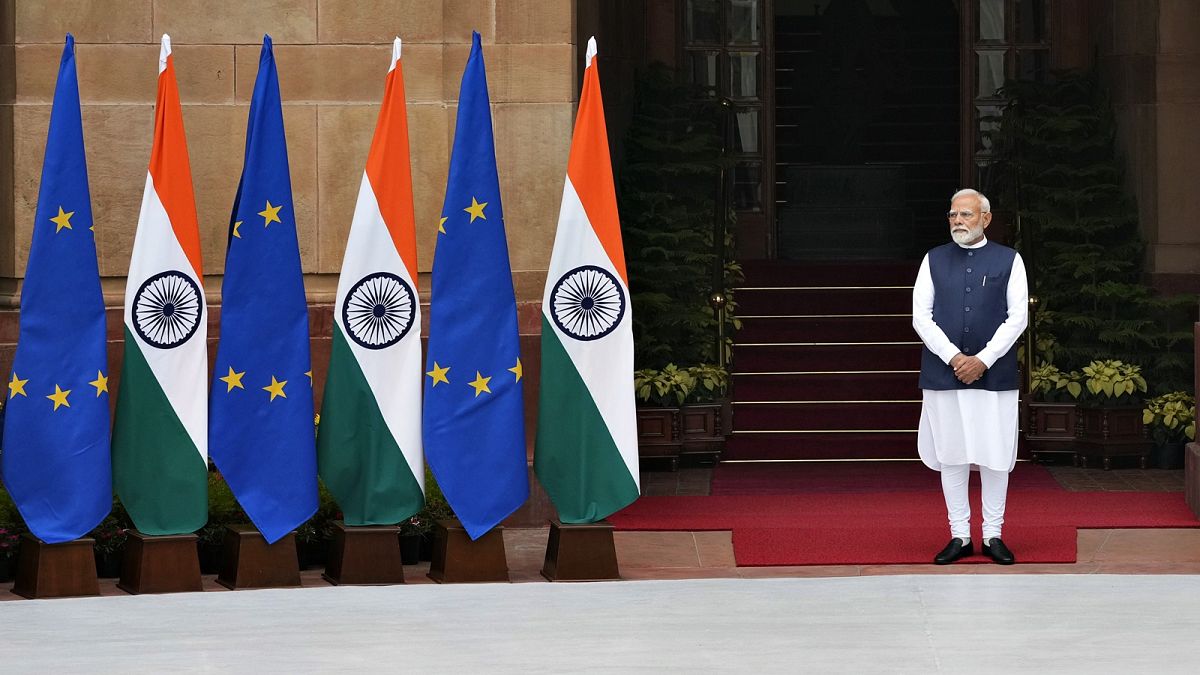

In a week marked by significant diplomatic movements, global leaders and nations have been active in reshaping alliances and addressing international tensions. European Union’s strategic interactions, US-EU cooperation, and UK’s diplomatic engagements all highlight a period of dynamic transitions and efforts towards harmonious resolution of complex issues.
As the European Union continues to expand its global partnerships, particularly with India, it moves towards strengthening its position on the global stage. This diplomatic shift comes amidst a notable cooling of relations between India and the United States, providing the EU an opportunity to forge a stronger alliance with New Delhi. By cultivating these ties, the EU aims to enhance its geopolitical influence and foster economic partnerships with one of the world’s largest democracies. This approach is part of a broader strategy to navigate the complexities of international relationships with a balanced and engaging approach.
Alignment between the European Union and the United States is also evident in their coordinated efforts to increase pressure on Russia regarding the ongoing conflict in Ukraine. Recently, a delegation from the EU met with US counterparts to prepare a joint framework for further sanctions against the Kremlin. This collaboration highlights a shared commitment to resolving the Ukraine crisis through diplomatic means, demonstrating solidarity and a unified stance against aggression. Such actions are aimed at further isolating Russia until a peaceful settlement is reached, partly showing the ongoing international commitment to support Ukraine in these challenging times.
At the same time, former Australian ambassador to Russia, Peter Tesch, expressed optimism about international efforts for Ukraine. His statements came after Australia’s Prime Minister, Anthony Albanese, participated in a virtual coalition meeting of leaders supporting Ukraine. Tesch emphasized the importance of continued diplomatic dialogue as a means to pressure Russia towards serious peace negotiations, despite current geopolitical challenges. Similarly, ensuring that Ukraine feels supported in their pursuit of peace underscores the need for global unity in addressing multifaceted conflicts.
In the UK, emotions are high as diplomatic questions arise about meetings amid sensitive topics. Israeli President Isaac Herzog’s forthcoming visit to London has sparked discussions, with some Labour MPs advising party leader Keir Starmer against meeting Herzog. The timing is particularly momentous as the UK edges closer to potentially recognizing Palestinian statehood at the upcoming UN General Assembly. This delicate issue requires thoughtful diplomacy, balancing relations with Israel while acknowledging the complexities of Palestinian statehood discussions. Such situations highlight the importance of diplomatic sensitivity and the need for careful, respectful dialogue.
Across the globe, the theme of bridging differences and finding common ground resonates through these diplomatic endeavors. By engaging in constructive discussions and collaborative actions, world leaders are making strides to foster peace and stability amid challenges. This week serves as a reminder of the potential for positive outcomes when nations collaborate openly and thoughtfully, moving forward in creating a more harmonious global community.
Source: {link}
